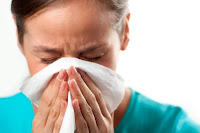Down with the Sickness
New classes, new environment, new people, new stress, new
GERMS! With all of the hustle and bustle, abundance of people, lack of sleep,
possible inadequate nutrition, it is not shocking for many students (and
faculty) to become susceptible for different illnesses. Last year at FSU, a
proportion of students reported being diagnosed or treated by a professional
for the following illnesses: bronchitis (10%), mononucleosis (1.1%), sinus
infection (25.5%), strep throat (17.6%). The good news is, nutrition can help
increase immunity to lessen your chances of becoming sick. Below are some
simple tips and tricks to incorporate into your routine in order to keep you on
your “A” game.
Hydration
Drinking water is essential for immunity by its
responsibility to carry oxygen throughout your body, regulating body
temperature, and many other functions.
It is recommended to drink half of your body weight in ounces every day.
For example, a 150-pound individual should aim for 75 ounces (~ 9 cups) of water per day. Try
bringing a water bottle to class and having it in-sight so that you are more
inclined to take sips!
Protein
Amino acids, or protein, are known as the “building blocks”
of the body. Proteins make up many parts of your body such as hair, skin, nails
and play a key role in many processes for everyday life. Since proteins are
used and broken down every day, it is important that we replenish them. A lack
of protein can also lead to a lack of immunity. Aim to have a protein source
such as chicken, beans, nuts, Greek yogurt, or eggs at every meal and snack!
Probiotics
Probiotics are a source of “good” bacteria that feed our gut
and give it energy. About 70% of your immune system stems from your gut.
Keeping your gut happy will give you a stronger immune system. Some sources of
probiotics are yogurt, Kefir, tempeh, and fermented food such as pickles,
sauerkraut, and kimchi. Try a new recipe every week that includes probiotics!
Zinc
Zinc is important for normal growth, healing wounds and
strengthening the immune system. This mineral has also been proven to be a
vital component to fighting off infection and disease. Ways to add more zinc to
your meals are through avocados, poultry, eggs, beans, nuts, seeds, and dark
chocolate. YUM!
Vitamin D
Low levels of Vitamin D have been shown to increase your
risk for developing colds, flus, and respiratory infections. Vitamin D helps
enhance bone density and also has antimicrobial functions in the body that can
help increase your immunity. Thankfully we live in Sunshine State, so we can
get some Vitamin D from the sun! You can also get Vitamin D in your diet
through fatty fish such as salmon and tuna, beef, eggs, cheese, and foods
fortified with Vitamin D such as cereals, orange juice, and some dairy
products.
Alcohol
Large consumption of alcohol can wreak havoc on the immune
system. Your body puts many other vital functions on pause in order to process
the alcohol that is being consumed. If you are of age and choose to drink
alcohol, stick within the recommended limits: up to one drink per day for
women, and up to two drinks a day for men. If you feel yourself becoming sick,
it may be best to forego consuming alcohol until your sickness subsides.
Extra Tips
Being sick is not fun! Try to incorporate some of these
habits into your routines to help avoid catching a cold or another sickness.
Other tips to keep from getting sick are to eat a variety of fruits and
vegetables, try your best not to skip meals, get at least 6-8 hours of sleep
every night, find healthy ways to reduce stress, and wash your hands
frequently!






